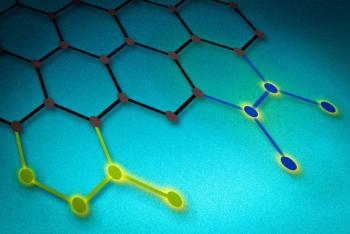| Online: | |
| Visits: | |
| Stories: |

| Story Views | |
| Now: | |
| Last Hour: | |
| Last 24 Hours: | |
| Total: | |
A new carbon-based catalyst bonds to the edges of graphene
Researchers at MIT and Lawrence Berkeley National Laboratory have developed a novel kind of tunable catalyst that could potentially replace costly rare metals that are currently used in fuel cells. The catalyst is made of graphite, with additional compounds attached to the edges of the 2D sheets of graphene that the material is composed of. The catalyst’s characteristics can be tuned to promote specific chemical reactions by altering the composition and the quantities of the additional compounds.

The scientists aimed at merging the attributes of two different electrocatalysts - Molecular electrocatalysts, that can be tuned through chemical treatment so their selectivity and reactivity can be customized, and heterogeneous electrocatalysts that can’t be tuned precisely but are known for their durability and ease of processing into a device. The team worked towards chemically modifying graphite’s structure to provide the desired tunability.
Source: http://www.graphene-info.com/new-carbon-based-catalyst-bonds-edges-graphene



